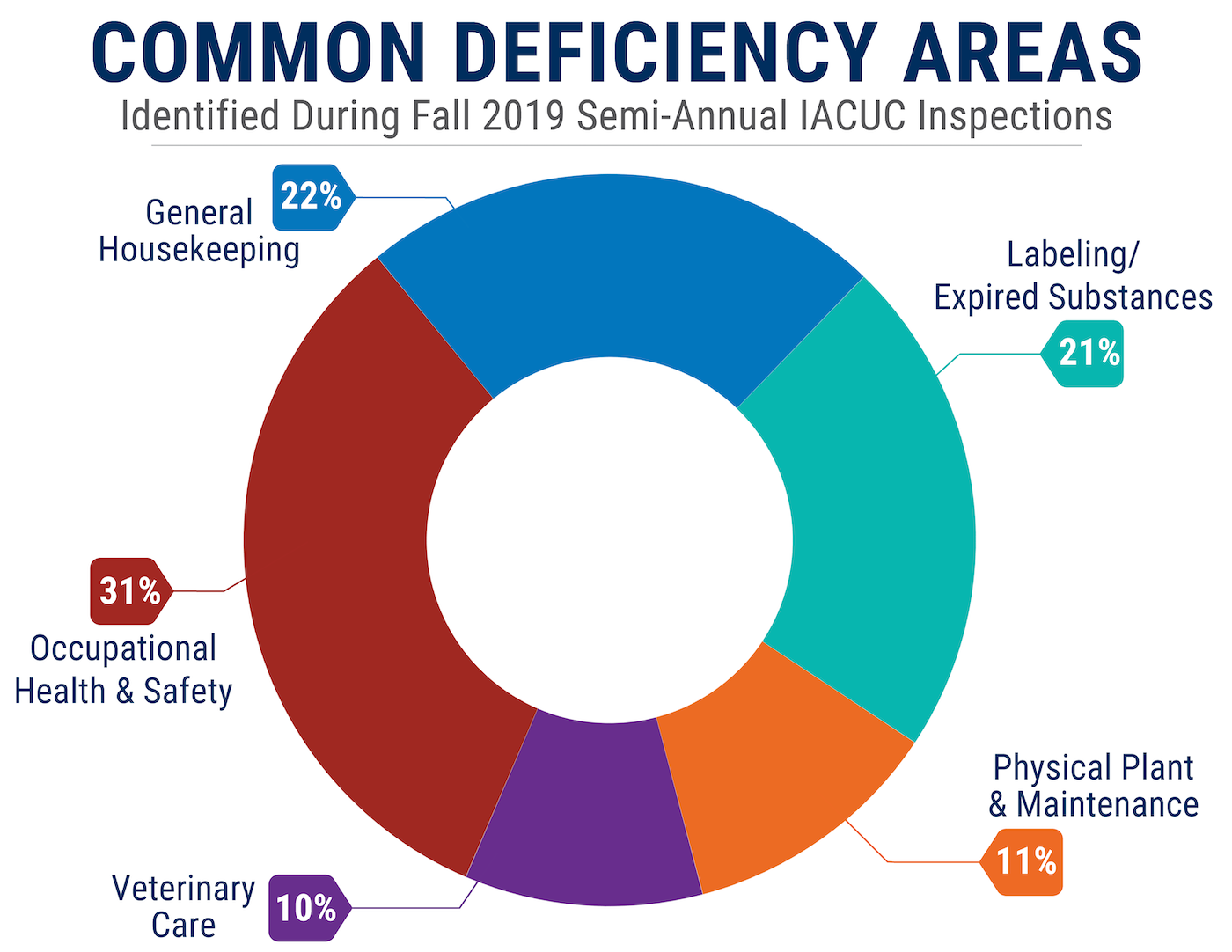You are here
- Home
- Announcements
- Lessons Learned from Fall 2019 Semi-Annual Facility Inspections
Lessons Learned from Fall 2019 Semi-Annual Facility Inspections

The Institutional Animal Care & Use Committee (IACUC) completed its latest round of semi-annual facility inspections at the end of September.
These inspections are one of the most important tools we have for assessing our programmatic strengths and areas for individual and collective improvement(s) in service to the animals under our care.
As such, we hope that you will take a few minutes to review these latest findings along with our suggestions for improvement. Please also share and discuss this information with your staff, including any students involved with research in your laboratory.
Common Deficiency Areas Identified During Fall 2019 Inspections:
|
|
|
|
Examples:
|
Suggestions for Improvement:
|
|
|
|
|
Examples:
|
Suggestions for Improvement:
|
|
|
|
|
Examples:
|
Suggestions for Improvement:
|
|
|
|
|
Examples:
|
Suggestions for Improvement:
|
|
|
|
|
Examples:
|
Suggestions for Improvement:
|
Failure to follow proper policies and procedures, even those that may seem relatively small or insignificant, puts individual and animal safety at risk and could lead to serious citations for the entire University. Remember, maintaining a safe and secure environment for our animals and our research personnel is paramount to the integrity and success of our research.
Questions or concerns about semi-annual IACUC facility inspections, or any of the items outlined above, should be directed to the Animal Care & Use Office at acuoffice@umich.edu or (734) 763-8028.
We thank you for your diligence and attention to these important matters.